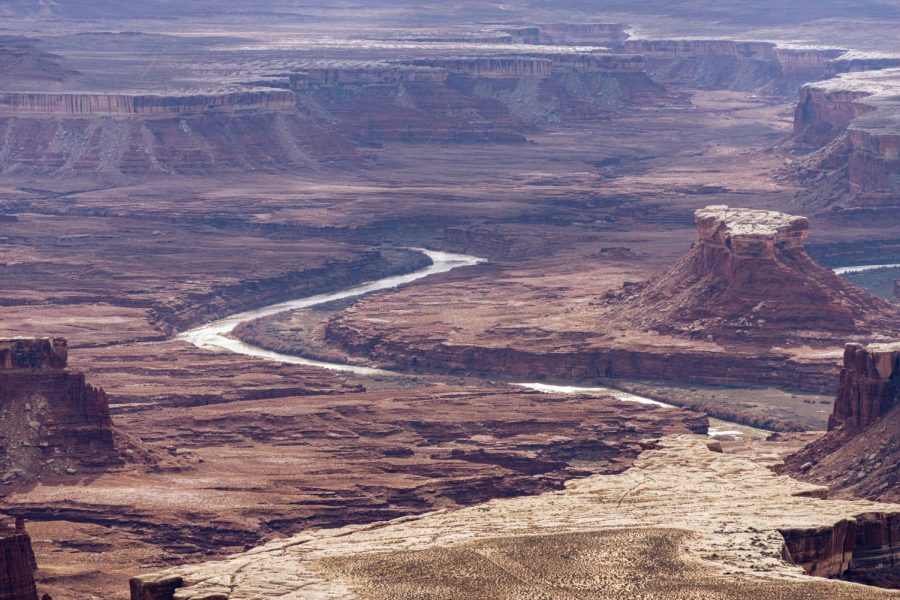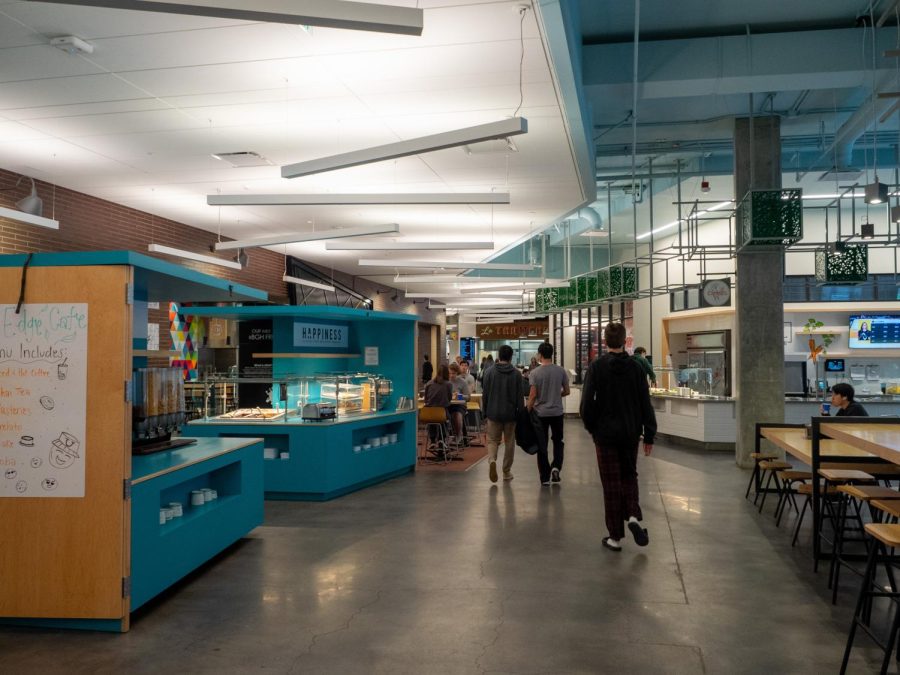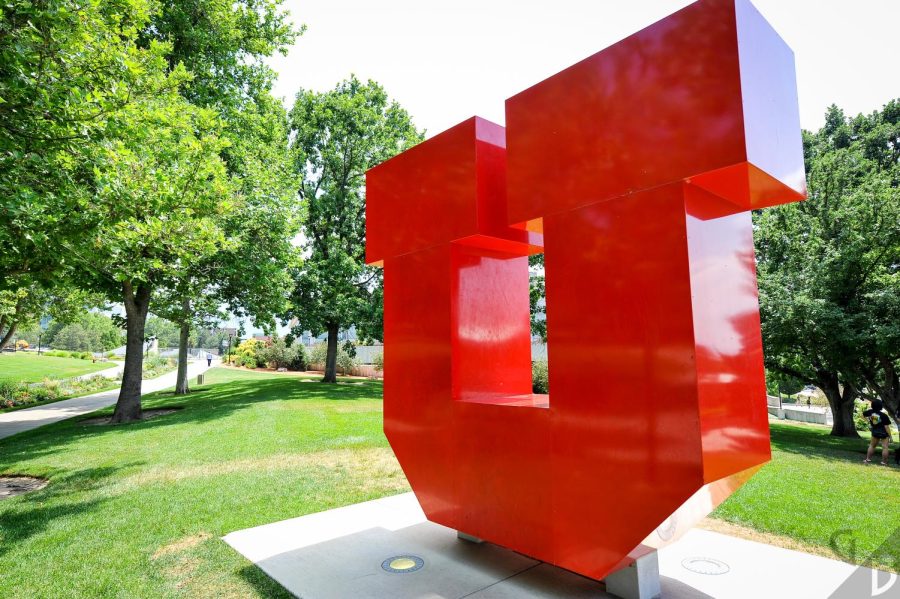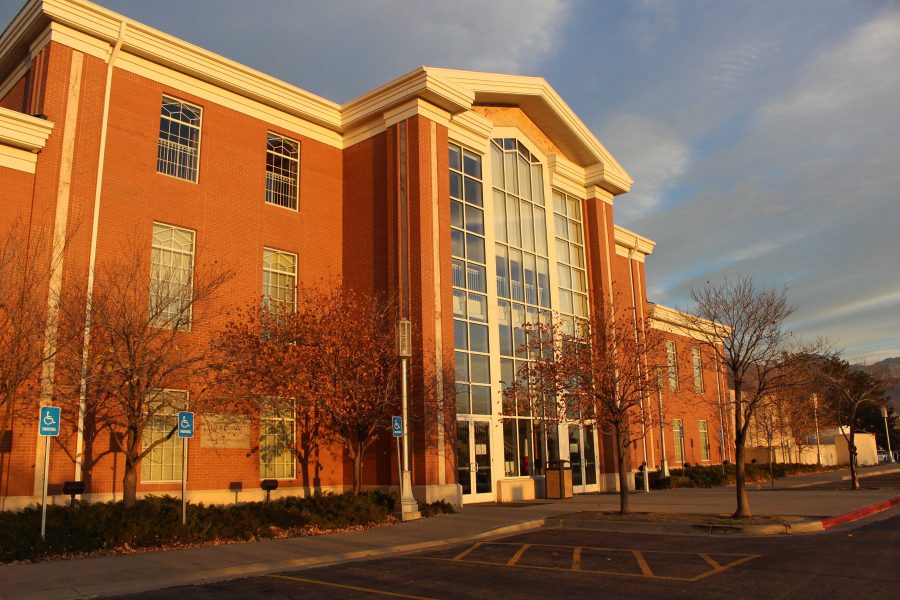Dunn: We Don’t Need the Lake Powell Pipeline
The Colorado River in Canyonlands National Park, Utah on March 10, 2022. (Photo by Xiangyao “Axe” Tang | The Daily Utah Chronicle)
June 16, 2023
In April, I wrote an article on water usage in Utah. In that article, I focused on the public use of water, particularly in the agriculture industry. Now, I’m focusing on a proposed water solution for one Utah county.
The Lake Powell Pipeline is a proposed pipeline to supply water to Washington County in Southern Utah. Washington County currently diverts water from the Virgin River as its only water source. The pipeline project was initially signed into law in 2006. So far, no progress has been made, but officials say the pipeline is still the long-term solution. This pipeline is not the solution to Washington County’s water problem. Instead of spending taxpayer’s dollars on shipping water across the county, Southern Utah’s focus should be conserving the water they have.
The pipeline has been proposed to bolster the growing St. George area, known as the fastest-growing metropolitan area in the U.S. in 2020 and 2021. This pipeline would divert 28 billion gallons of water to support the small area, where 160,000 Utahns currently reside. This area, and the rest of Washington County, use approximately 159 gallons of water per person per day. Fifty-nine percent of this water usage goes towards residential needs, primarily ornamental lawns. This is unlike Utah as a whole, where the biggest use of water is agriculture.
The pipeline project would cost an estimated $2.24 billion. This heavy price tag would come with increased taxes, impact fees and water rates that would fall on the shoulders of Washington County residents. However, water rates are subject to “elasticity of price.” This means as the price of water increases, the demand decreases and people use less. If Washington County builds the pipeline, it will drastically increase water rates. This change will only lead to people using less water due to unaffordability, with the county and taxpayers paying to ship water they’re not using. The pipeline could be a way to keep the county growing, but it is ultimately unsustainable.
The pipeline would pull directly from the Colorado River. This river, according to the Nature Conservatory, is at critically low levels. These levels are primarily due to climate change, but are only made worse by increased water diversion. The river services 36 million people across the Great Basin.
“Without the Colorado River, it’d be really hard for pretty much any major city or population center in the southwest United States to exist,” said Nick Halberg, a researcher and policy analyst for the Utah Rivers Council. “It’s important to really incredible ecosystems … [within] all the different national parks smattered along and near the Colorado River. The different wildlife refuges and preserves. It supports just a whole bunch of ecosystems and really important places.” Water use from the Colorado River has also been devastating for farmers, who were allocated virtually zero gallons of water this year.
In 2007, due to a severe drought, the Colorado River Interim Guidelines were established to allocate the limited water supply amongst Colorado, New Mexico, Utah, Wyoming, Arizona, California and Nevada. The six other basin states that use Colorado River water have raised concerns about the pipeline. In their concerns, the state of Nevada insisted that Utah focus its effort on water conservation instead of a project that will harm an already depleted Lake Mead. With the Interim Guidelines expiring in 2026, and renegotiations underway, the pipeline’s future is uncertain and may never come to fruition.
There are also environmental justice issues that would accompany the implementation of the pipeline. One draft of the proposal consists of a route that would go through the Kaibab Indian Reservation.
“[That route] is proposed to run through an area of Critical Environmental Concern” Halberg explained. “This is an area that holds not only important, fragile ecosystem, species and plant life, but also is really sacred to the Kaibab band of Paiute Indians.” Another proposed route would follow the southern border of the reservation. Proponents of the pipeline support the southern route as it would effectively bypass the reservation. However, the Kaibab tribe doesn’t support either route, fearing that even the southern route would disturb their land.
Washington County has improved their conservation efforts when compared to other areas of Utah. The county has reduced its water usage by 30% since 2000. However, there is always room for improvement and other avenues the county should focus on. The county recently hired a water official from Nevada to aid in conservation efforts. The official, Doug Bennett, worked for the Southern Nevada Water Authority. Since 2002, efforts from that organization decreased Las Vegas’s per capita water usage by 50%, despite huge population growth. Washington County is also introducing projects to recycle water and has passed city mandates to decrease lawns.
“One of the big things that we’ve recently done is started offering people cash to change their non-functional turf into desert-friendly landscaping,” said Brock Belnap, the associate general manager at the Washington County Water Conservancy District. “[And] because of how the pipeline is tied up in the uncertainty of the future of the river, we’re going to be focusing on recycling our existing water. … We’re going to be using the water that we can drink for drinking and using recycled water for irrigation and agriculture to really squeeze [the water] out as far as we can.”
While the county has seen significant growth recently, the population growth rate decreased last year and may continue to do so. Additionally, the former Lake Powell Pipeline leader gave the Utah Rivers Council an interview where he explained that if local communities got rid of lawns, the pipeline would be unnecessary. Washington County needs to shift its focus from growth to conservation. The initiatives already being implemented are the solution, and the county does not need the Lake Powell Pipeline.













Bill Ferry • Jun 17, 2023 at 10:40 am
Build the pipeline today!